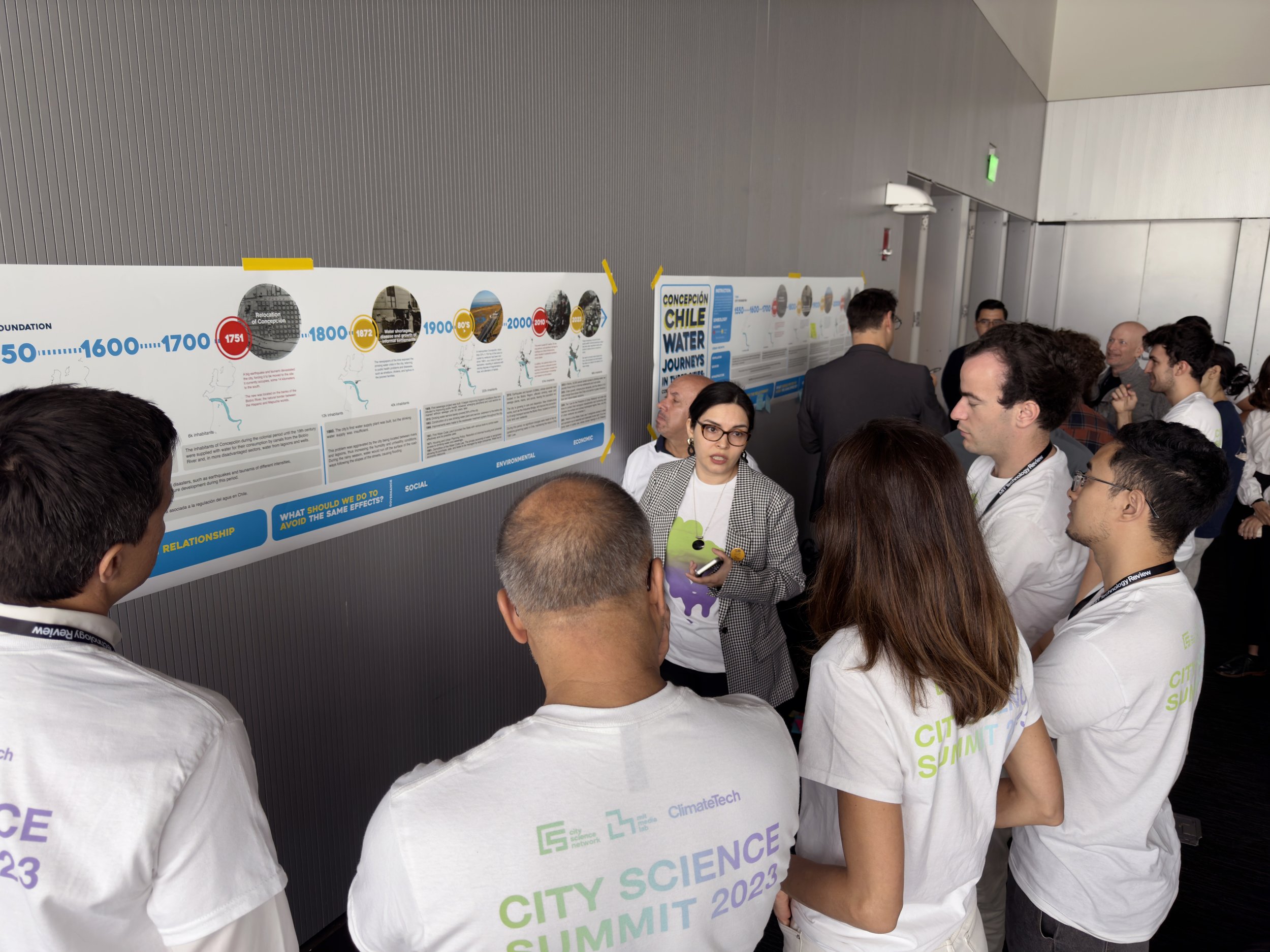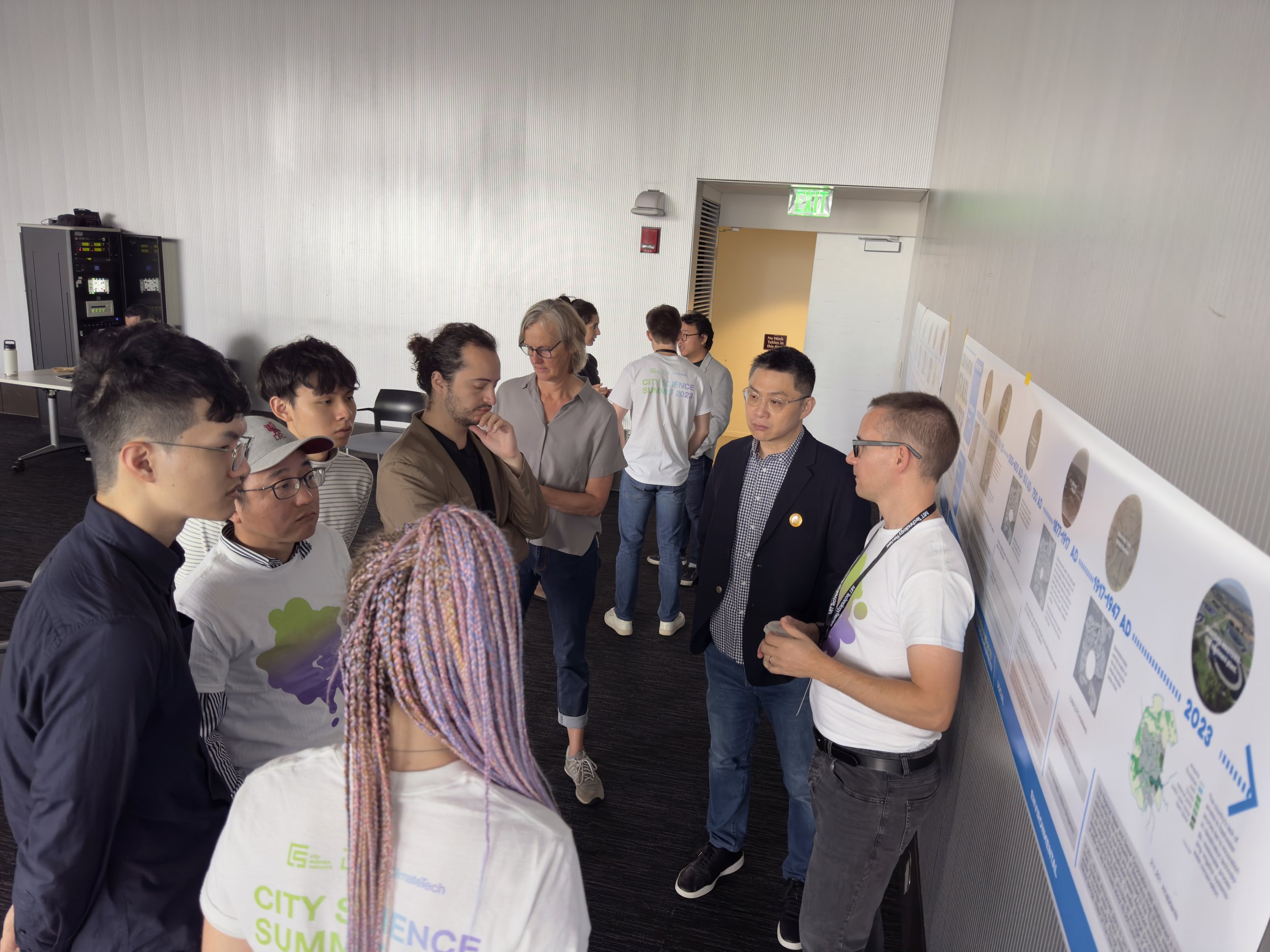
Water Journeys in three cities: Comparative Water Dynamics
Abstract
The workshop aimed to analyze water dynamics in BioBío, Guadalajara, and Beer-Sheva, focusing on challenges, solutions, and future projections for each city. Attendees collaborated to create a timeline of significant water-related events, fostering interactive learning and networking among professionals. The session provided insights into urban water dynamics, comparative analysis, and innovative strategies for sustainable water management. Participants gained a deeper understanding of water challenges and solutions specific to each city. The organizing labs can utilize the gathered information to develop innovative solutions and shape future work towards more sustainable water risk management in their respective cities.
Takeaways
The workshop intended to highlight the importance of adopting multi-hazard and long-term planning to understand the context from multiple perspectives so that a systemic innovation approach can be built. After analyzing the various ideas collected, the main takeaways could be categorized as follows:
Political constraints are still one of the most significant obstacles when it comes to solving regional water problems.
Environmental restoration can be a tool to address multiple problems that result from the degradation of the environment (floodings, droughts, and heat waves) by adopting a comprehensive approach to the natural ecosystem
Digital twins can be a powerful instrument for scenario-testing and identifying risks and opportunities (considering de multi-hazard context).
Your experience
The collaborative workshop proved to be a valuable experience, fostering mutual learning and exposing participants to the diverse contexts and challenges of each city involved. During the workshop, attendees delved into specific issues affecting each city and proposed potential solutions, benefiting from the collective input of the network. However, challenges arose, particularly in coordinating activities and aligning agendas across different time zones, as well as negotiating the scope of the workshop to ensure manageability for all three labs. Despite these difficulties, efforts were successfully coordinated, and resources were shared to bring the project to a successful conclusion. Overall, the workshop provided a platform for fruitful exchange and collaboration, facilitating a deeper understanding of shared challenges and potential solutions in urban water management.


